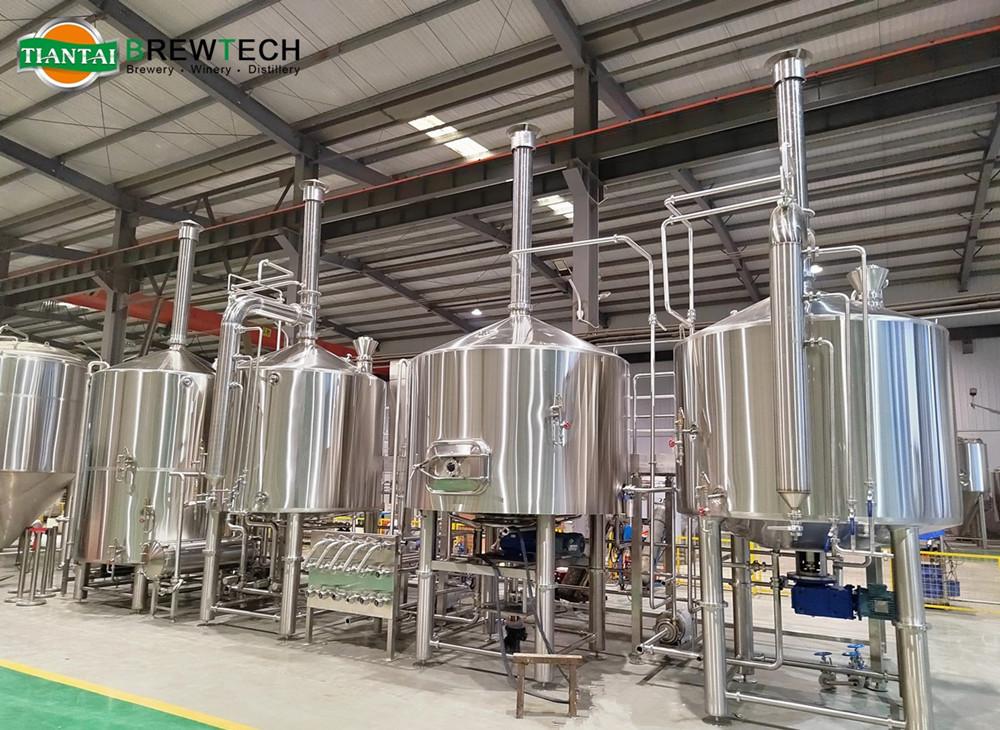
Understanding the Market Dynamics
Rising Demand for Craft and Premium Beers
Africa's middle class is expanding, leading to increased disposable incomes and a preference for premium and craft beers. Consumers are becoming more adventurous with their drink choices, seeking unique and high-quality beverages. This shift presents an opportunity for breweries to introduce new and innovative products.Urbanization and Changing Lifestyles
The continent's urbanization is accelerating, with more people moving to cities. Urban dwellers have a higher propensity to try new products, including craft beers. The fast-paced city life also favors the consumption of ready-to-drink beverages, further boosting the beer market.Health and Wellness Trends
There is a growing awareness of health and wellness among African consumers. This trend drives demand for beers with natural ingredients, lower alcohol content, and functional benefits. Brewers can tap into this market by offering health-focused beer options.Cultural and Regional Diversity
Africa is incredibly diverse, with varying tastes and preferences across regions. Successful breweries will customize their products to reflect local flavors, ingredients, and cultural preferences. This approach not only satisfies local palates but also creates a strong brand identity.Strategic Advantages of Setting Up a Brewery in Africa
Untapped Market Potential
Many African countries have a relatively low per capita beer consumption compared to global averages, indicating significant growth potential. By entering the market early, breweries can establish a strong foothold and build brand loyalty.Cost-Effective Operations
Setting up and operating a brewery in Africa can be more cost-effective than in many Western countries due to lower labor and production costs. This financial advantage allows for higher margins and the ability to invest in quality ingredients and innovative brewing techniques.Supportive Regulatory Environment
Several African governments are creating favorable conditions for the brewing industry. Policies aimed at promoting local production, along with incentives for small and medium-sized enterprises (SMEs), make it easier for breweries to establish and grow their operations.Planning and Setting Up Your Brewery
Feasibility Study and Market Research
Conduct a thorough feasibility study to understand the market demand, competition, and regulatory environment. Identify the best location for your brewery, considering factors like proximity to raw materials, target market, and distribution channels.Designing the Brewery
Work with experts to design a brewery layout that optimizes space, efficiency, and workflow. Ensure that the design complies with local regulations and can accommodate future expansion.Selecting the Right Equipment
Choosing the right equipment is crucial for the success of your brewery. Tiantai offers a comprehensive range of high-quality brewery equipment, including:· Malt Milling Equipment: Essential for grinding malt to the required consistency.
· Brewhouse Systems: The heart of the brewery where the brewing process begins.
· Fermentation Vessels: Where the wort is fermented into beer.
· Brite Beer Tanks: For maturing, clarifying, and carbonating the beer.
· Beer Bottling Machines: For efficient and hygienic packaging of beer.
· Beer Canning Machines: An alternative packaging solution.
· Beer Kegging Machines: For distributing beer to bars and restaurants.
· Hop Guns: For adding hops during the brewing process to enhance flavor.
· Yeast Propagation Tanks: For cultivating and maintaining yeast cultures.
· RO Water Treatment Machines: Ensuring the purity and quality of water used in brewing.
· DE Filters: For filtering beer and removing impurities.
· Air Compressors: For various brewery operations.
· Quality Control Equipment: Ensuring the consistency and quality of the final product.
Installation and Commissioning
Once the equipment is selected, the next step is installation and commissioning. This process involves setting up the equipment, testing it, and ensuring that it operates efficiently. It’s advisable to work with experienced technicians who can handle the technical aspects of the installation.Hiring and Training Staff
Recruit skilled and experienced staff to manage the brewery operations. Provide comprehensive training to ensure they are familiar with the equipment and brewing processes. Investing in staff training enhances productivity and ensures the production of high-quality beer.Regulatory Compliance and Licensing
Ensure that your brewery complies with all local regulations and obtain the necessary licenses. This includes health and safety standards, environmental regulations, and alcohol production and distribution permits.Launching Your Brewery
Marketing and Branding
Develop a strong brand identity that resonates with local consumers. Use local ingredients and flavors to differentiate your products. Invest in marketing campaigns to create awareness and build a loyal customer base.Distribution Strategy
Establish a robust distribution network to ensure your beer reaches the target market. Consider working with local distributors and retailers to expand your reach. Additionally, explore direct-to-consumer channels like brewery taprooms and online sales.Continuous Improvement and Innovation
Regularly review your brewing processes and product offerings to identify areas for improvement. Stay updated with market trends and consumer preferences to introduce new and innovative products. Continuous improvement ensures your brewery remains competitive and meets the evolving needs of consumers.Conclusion
Setting up a 10,000L/batch commercial brewery in Africa is a promising venture with significant growth potential. By understanding the market dynamics, leveraging strategic advantages, and investing in high-quality equipment, breweries can thrive in this burgeoning market. Tiantai is here to support your journey with comprehensive brewery equipment and expert guidance. Reach out to us to learn more about our offerings and take the first step toward establishing a successful brewery in Africa.Contact Information:
Email: [email protected]
Contact Person: Emily Gong




.jpg)
.jpg)

Get In Touch